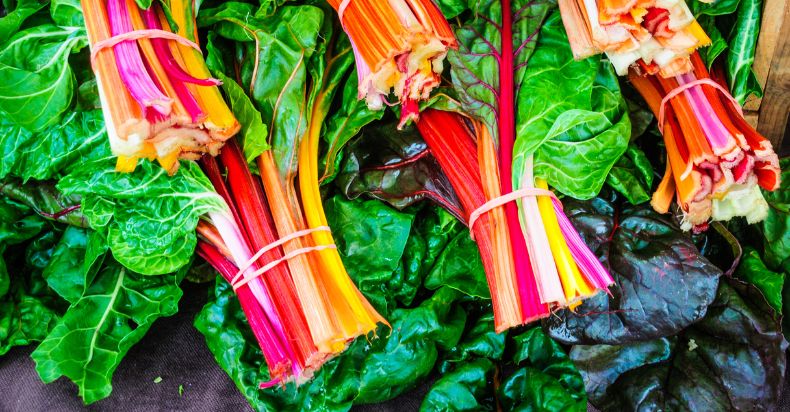Oxalates, or oxalic acid, are organic compounds found in many plant-based foods. While they are naturally occurring and generally harmless in small amounts, excessive oxalate consumption can lead to the formation of kidney stones and other health issues.
This is because oxalates can bind to calcium in the body, forming crystals that may accumulate in the kidneys. For individuals prone to kidney stones or advised to follow a low-oxalate diet, monitoring oxalate intake is crucial.
Is Swiss Chard High in Oxalates?
Swiss chard is indeed high in oxalates, with a 100-gram serving containing approximately 200-250 milligrams of oxalates. Therefore, it is advisable for individuals following an oxalate diet to limit their consumption of Swiss chard or opt for other low-oxalate leafy greens.
The Importance of an Oxalate Diet
An oxalate diet involves limiting the intake of foods high in oxalates while increasing the consumption of low-oxalate foods.
This diet is often recommended for individuals with a history of kidney stones or other oxalate-related health issues.
The key principles of an oxalate diet include being aware of the oxalate content in foods, consuming calcium-rich foods to reduce oxalate absorption, and drinking plenty of water to help flush oxalates from the body.
Nutritional Profile of Swiss Chard

Swiss chard is a leafy green vegetable that is rich in vitamins and minerals, including vitamin K, vitamin A, vitamin C, and magnesium.
It is also a good source of dietary fiber and antioxidants, which can help combat oxidative stress and inflammation.
Due to its nutritional benefits, Swiss chard is often included in a healthy diet.
Oxalate Content in Swiss Chard
Swiss chard is known to have a high oxalate content. A 100-gram serving of Swiss chard contains approximately 200-250 milligrams of oxalates.
This is significantly higher than the oxalate content in other leafy greens like lettuce or kale.
Therefore, if you are following an oxalate diet, it is advisable to limit your consumption of Swiss chard or opt for other low-oxalate leafy greens.
Managing oxalate intake is essential for individuals following an oxalate diet.
Here are some tips for reducing oxalate consumption:
- Be aware of the oxalate content in the foods you consume.
- Cook high-oxalate foods, like Swiss chard, to reduce their oxalate content.
- Consume calcium-rich foods along with high-oxalate foods to reduce oxalate absorption.
- Drink plenty of water throughout the day to help flush out oxalates from the body.
Conclusion
Swiss chard is high in oxalates, and its consumption should be limited or avoided by individuals following an oxalate diet.
While Swiss chard offers many nutritional benefits, it is important to consider its oxalate content and manage oxalate intake accordingly.
By being aware of the oxalate content in foods and following a balanced diet, it is possible to enjoy a variety of nutritious foods while minimizing the risk of kidney stones and other oxalate-related health issues.
